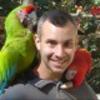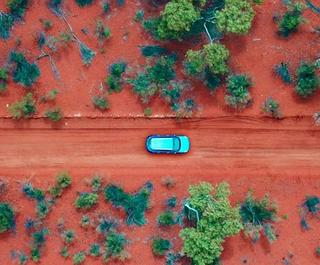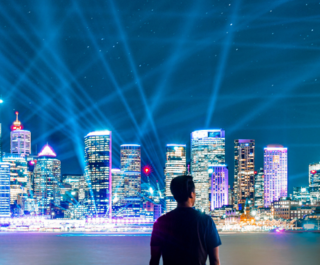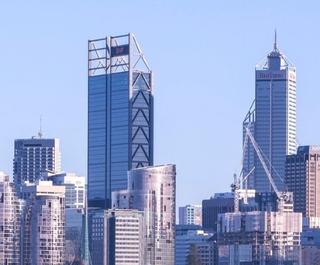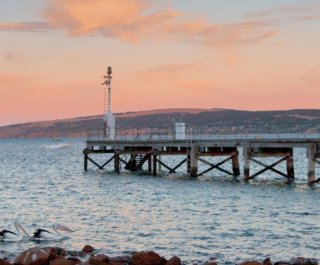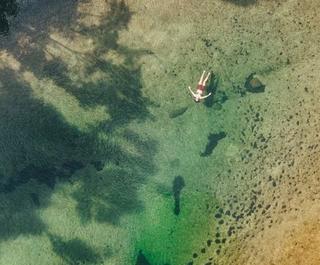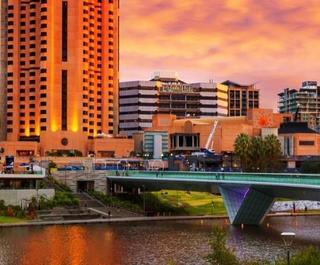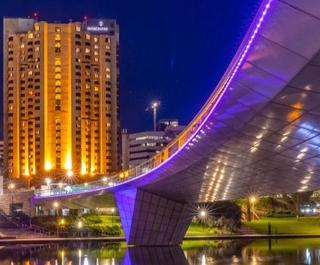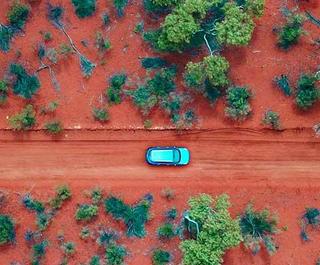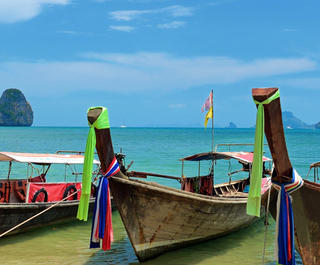
Dr Karl Kruszelnicki's record for the number of flights in one year is 142. "In that year, I had five medical emergencies to deal with while on board. But on average I take between 50 and 60 flights a year and usually have one medical emergency. It's my duty to assist. I've had the training," said Dr Karl.
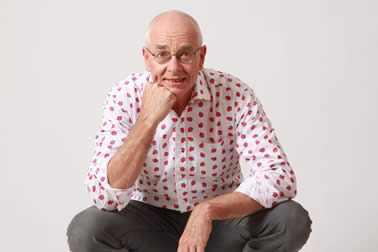 Dr Karl
Dr Karl
"The majority of my travel is for work where I address audiences ranging anywhere from 20 to 2500 people. I'll fly to all different parts of Australia but mostly the east coast and Perth. I was flown to Malaysia about 12 years ago to speak to the group that represents insurance companies to discuss the implications of genetic revolution," he said.
If he had to choose his most interesting terrain in Australia it would have to be the desert.
"I've spent two years in total travelling through the outback; I've been to 15 of the 17 Australian deserts. I'd go away for three months at a time. It's just incredibly beautiful and special. Our longest trip was starting in Alice Springs; we headed west for 1000 kilometres and then north for 1000 kilometres over one month. In that month we didn't see another human being and had to carry our fuel and food. We spent our time navigating from well to well along the Canning Stock Route. Sometimes the water was crystal clear, other times it was muddy and then there might be a dead bird or lizard - but whatever it was like, we drank it."
Dr Karl Kruszelnicki is one of Australia's foremost science journalists, whose television programs and print columns have made science accessible to generations of enthusiasts. Dr Karl, who received an Order of Australia in 2006 and was named a National Living Treasure by the National Trust in 2012, has authored 32 books. His latest publication is entitled 50 Shades of Grey Matter.
"From the science literature I read every year, I've found around 40 to 50 entertaining and interesting stories to pass on," said Dr Karl.
In the book Dr Karl answers those all important life questions such as what colour is the universe and why is it dark at night, how does Hollywood actress Anne Hathaway make the stock market jump and where does the rubber dust from tyres go. Another anecdote that Dr Karl came across in his research revolved around the eating of marshmallows in children.
According to Dr Karl, in the late 1960s a psychologist gave children aged between four and six the opportunity of receiving two marshmallows if they waited 15 minutes before eating the first one. The majority of kids tried to wait the 15 minutes but most failed. The conclusion is - that if a four year old child can demonstrate self control at that age, then they are more likely to succeed academically and have a successful career.
While he grew up in Wollongong, Dr Karl was born in Helsingborg, Sweden. One of Karl's more memorable travel experiences was when he headed back to the region of his birth.
"In 2006 my wife and I flew to Kirkenes, on border of Norway and Russia. We then got married on the longest day of the year under the midnight sun. In the same way that the sun did not set on our wedding, so too will our love never set," said Dr Karl.
Last year, Dr Karl went to Germany to see his brother in law, before travelling to Geneva and onto Berlin for the new year. What made this trip extra special was that he saw both the northern and southern lights. He witnessed the aurora borealis in Iceland and then several weeks later in Antarctica he was lucky to see the aurora australis on one particular night that lasted only four hours.
When asked about a scientific analysis for travel, Dr Karl has some very sound advice. He has noted that it's more beneficial to have many short break holidays rather than just one long holiday. The logic is that the anticipation and unwind is part of the experience, so by taking for example four, one-week holidays leads to four times more the anticipation than just taking one, four-week holiday.
Dr Karl is currently touring Australia to discuss his new book. Tomorrow, Friday December 7, he will be signing his book at Angus and Robertson Post Office Square from 12.00pm and speaking at the Brisbane Library in the evening.

